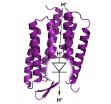(Press-News.org) Nurses have a responsibility to respect and support patients who use cannabis for medicinal purposes, but must stay within the law and follow professional guidance at all times, according to a research review in the September issue of the Journal of Clinical Nursing.
Dr Anita Green and Dr Kay De-Vries studied more than 50 published papers, together with professional and Government guidance documents, official reports and media coverage, from 1996 to 2009.
They point out that the fact that the cannabis is usually obtained illegally can have consequences for those who choose to use it for its medicinal value and create real dilemmas for the nurses and other healthcare professionals who care for them. For example, it is vital that any drug use is recorded on the patient's medical records for their own safety, but many patients may be unhappy for that to happen.
"Nurses are increasingly likely to deal with patients using medicinal cannabis and it is important that they put their personal views to one side and deal with the health consequences of that drug use" says Dr Green, a Nurse Consultant for the Sussex Partnership NHS Foundation Trust and Visiting Fellow at the University of Brighton.
"The literature on the medicinal use of cannabis repeatedly refers to changes that could improve people's quality of life, like improved sleep, a better appetite and reduced depression, and these perceived benefits have led to greater usage.
"However, it also states that far more research is needed and it is very important that patients are fully aware of the legal consequences of taking cannabis, together with the physical and psychological effects it may have on them.
"Nurses and other healthcare professionals need to be well informed about the medicinal effects of cannabis and how this can interact with other medication the patient is being prescribed. It is also vital that the patient's cannabis use is accurately documented in their records and that other professionals, such as pharmacists, doctors and substance misuse teams are brought in to provide advice, with their permission."
Cannabis, which has been widely used as a herbal remedy since ancient times, was brought to Western Europe at the beginning of the 19th century by Napoleonic soldiers who had been fighting in North Africa.
Its medicinal use was advocated in European and American medical articles as far back as 1849, but was banned in the UK in 1928 after UK delegates at an international opium conference were persuaded that cannabis caused insanity.
"Our review shows that the general view of integrating cannabis derivative medications into mainstream medical use remains extremely cautious" says Dr Green. "Most of the research we studied indicated that there was a need for more clinical trials examining the optimal administration routes and dosing regimes.
"It is repeatedly pointed out in the literature that the development of cannabis and isolated synthetic cannaboids for medicinal purposes is still in its infancy and has a long way to go.
"The aim of our study was to review the literature and to raise awareness of the questions and dilemmas facing the medical profession, specifically nurses, when it comes to caring for patients who use cannabis for medicinal reasons.
"We hope that the review - which looked at the research published into the pharmacological qualities of cannabis and its use in palliative care, for example cancer, multiple sclerosis and motor neurone disease - will stimulate further debate.
"In the meantime, it is vital that nurses and other healthcare professionals act within the law and follow the guidance laid down by their professional organisations."
The authors say that the review highlights the real dilemmas created for the medical profession by the medicinal use of cannabis.
"Nurses have a caring responsibility to maximise their patients' quality of life, but should they also be reminding them that the medicinal use of cannabis remains illegal?" asks Dr Green. "Or should they respect the patient's right to take the drug and just make sure that it does not conflict with any other treatment, such as prescribed medication?
"It is clear that further debate is essential and that nurses need ongoing support and guidance to help them tackle these thorny dilemmas and provide the best healthcare they can for their patients without compromising their professional integrity."
###
Notes to editors
Cannabis use in palliative care – an examination of the evidence and the implications for nurses. Green A J and De-Vries K. Journal of Clinical Nursing. 19, pp2454-2462. (September 2010). DOI: 10.1111/j.1365-2702.2010.03274.x
The Journal of Clinical Nursing (JCN) is an international, peer reviewed, scientific journal that seeks to promote the development and exchange of knowledge that is directly relevant to all spheres of nursing and midwifery practice. The primary aim is to promote a high standard of clinically related scholarship which supports the practice and discipline of nursing. JCN publishes high quality papers on issues related to clinical nursing, regardless of where care is provided. This includes - but is not limited to - ambulatory care, community care, family care, home, hospital, practice, primary and secondary, and public health. http://onlinelibrary.wiley.com/journal/10.1111/(ISSN)1365-2702
Wiley-Blackwell is the international scientific, technical, medical, and scholarly publishing business of John Wiley & Sons, with strengths in every major academic and professional field and partnerships with many of the world's leading societies. Wiley-Blackwell publishes nearly 1,500 peer-reviewed journals and 1,500+ new books annually in print and online, as well as databases, major reference works and laboratory protocols. For more information, please visit http://www.wileyblackwell.com/ or our new online platform, Wiley Online Library (http://www.wileyonlinelibrary.com/), one of the world's most extensive multidisciplinary collections of online resources, covering life, health, social and physical sciences, and humanities.
Medicinal cannabis review highlights dilemmas facing health care professionals
2010-09-04
ELSE PRESS RELEASES FROM THIS DATE:
Recipe for water: Just add starlight
2010-09-04
ESA's Herschel infrared space observatory has discovered that ultraviolet starlight is the key ingredient for making water in space. It is the only explanation for why a dying star is surrounded by a gigantic cloud of hot water vapour.
Every recipe needs a secret ingredient. When astronomers discovered an unexpected cloud of water vapour around the old star IRC+10216 in 2001, they immediately began searching for the source. Stars like IRC+10216 are known as carbon stars and are thought not to make much water. Initially they suspected the star's heat must be evaporating ...
Long term use of oral bisphosphonates may double risk of esophageal cancer
2010-09-04
People who take oral bisphosphonates for bone disease over five years may be doubling their risk of developing oesophageal cancer (cancer of the gullet), according to a new study published on bmj.com today.
Oral bisphosphonates are a type of drug used to treat osteoporosis and other bone diseases and are the most commonly recommended treatment for such conditions.
Case reports suggest an association between use of oral bisphosphonates for osteoporosis and increased risk of oesophageal cancer. But the evidence is limited, and no adequately large study with information ...
Roll-out of electronic patient records likely to be a long and complex process
2010-09-04
Interim results from the first comprehensive evaluation of the implementation of electronic health records in secondary care in England have found delays and frustration with the system, according to research published on bmj.com today.
The authors, led by Professor Aziz Sheikh from The University of Edinburgh (and which included researchers from The London School of Economics and Political Science, The School of Pharmacy and The University of Nottingham), say experiences from the first-wave implementation site "indicate that delivering improved healthcare through nationwide ...
Scientists unwrap DNA packaging to gain insight into cells
2010-09-04
Scientists have built a clearer picture of how lengthy strands of DNA are concertinaed when our cells grow and divide, in a discovery could help explain how cell renewal can go wrong.
Scientists have identified thousands of proteins that play a key role in compacting DNA – a crucial process by which DNA is shortened up to 10,000 times to fit inside cells as they split into two.
Researchers hope the findings could shed light on what happens when this packaging process fails and cells divide abnormally – which can lead to cancer or cause developing embryos to miscarry.
Scientists ...
Bochum's researchers discover proton diode
2010-09-04
Biophysicists in Bochum have discovered a diode for protons: just like the electronic component determines the direction of flow of electric current, the "proton diode" ensures that protons can only pass through a cell membrane in one direction. Water molecules play an important role here as active components of the diode. The researchers led by Prof. Dr. Klaus Gerwert (Chair of Biophysics at the RUB) were able to observe this through a combination of molecular biology, X-ray crystallography, time-resolved FTIR spectroscopy and biomolecular simulations. They report in the ...
Head start for migraine sufferers
2010-09-04
For severe migraine sufferers, psychological treatments build on the benefits of drug therapy, according to a new study1 by Elizabeth Seng and Dr. Kenneth Holroyd from Ohio University in the US. Their comparison of the effects of various treatment combinations for severe migraine – drug therapy with or without behavioral management – shows that those patients receiving the behavioral management program alongside drug therapy are significantly more confident in their ability to use behavioral skills to effectively self-manage migraines. And surprisingly, the increase in ...
Ancient brew masters tapped antibiotic secrets
2010-09-04
A chemical analysis of the bones of ancient Nubians shows that they were regularly consuming tetracycline, most likely in their beer. The finding is the strongest evidence yet that the art of making antibiotics, which officially dates to the discovery of penicillin in 1928, was common practice nearly 2,000 years ago.
The research, led by Emory University anthropologist George Armelagos and medicinal chemist Mark Nelson of Paratek Pharmaceuticals, Inc., is in the current issue of the American Journal of Physical Anthropology.
"We tend to associate drugs that cure diseases ...
Connection between light at night and cancer revealed in additional study
2010-09-04
A new study from the Center for Interdisciplinary Chronobiological Research at the University of Haifa has found an additional link between Light At Night (LAN) and cancer. This research joins a series of earlier studies carried out at the University of Haifa that also established the correlation. "High power light bulbs contribute more to 'environmental light pollution', which the study has shown is a carcinogenic pollution," notes Prof. Abraham Haim, who headed the study.
Earlier studies in which Prof. Haim has participated at the University of Haifa, have shown that ...
Listening to ancient colors
2010-09-04
A team of McGill chemists have discovered that a technique known as photoacoustic infrared spectroscopy could be used to identify the composition of pigments used in art work that is decades or even centuries old. Pigments give artist's materials colour, and they emit sounds when light is shone on them.
"The chemical composition of pigments is important to know, because it enables museums and restorers to know how the paints will react to sunlight and temperature changes," explained Dr. Ian Butler, lead researcher and professor at McGill's Department of Chemistry. Without ...
EMAS publishes position statements about the post-reproductive health of women
2010-09-04
Amsterdam, 2 September, 2010 - Elsevier announced today the publication of four important position statements from the European Menopause and Andropause Society (EMAS) in the journal Maturitas (http://www.maturitas.org/) on common management problems in the post-reproductive health of women. The statements cover the management of the menopause in the context of obesity, epilepsy, endometriosis and premature ovarian failure. Each statement has summary recommendations as a quick aid for the busy clinician.
"The expanding ageing female population means that clinicians ...

